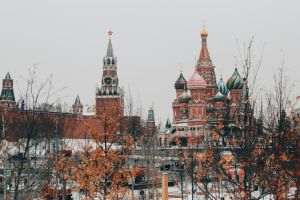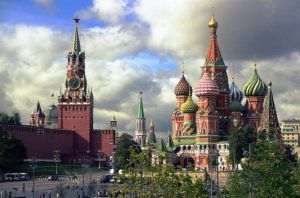The National Bank of Romania revised the inflation forecast for the last quarter of the year to 3.8%, from 3.5% as previously estimated, but the general downward trend in inflation remains, with the Consumer Price Index set to reach 3.1% in the latter part of next year, within the upper range of the bank's long-term target, according to data made public yesterday by Governor Mugur Isărescu, during the conference presenting the "Quarterly Inflation Report".
The Governor said: "In Europe, we do not expect major changes compared to previous forecasts; a slightly lower economic growth in 2025 and the assumption that the European Central Bank will reach its target and keep inflation within the foreseen limits. The current tensions between the United States and the European Union could not be introduced into this forecast (...). The annual inflation rate, measured based on consumer price indices, remains in the general downward trend throughout the current year, followed by a stabilization in the upper half of the target range starting with 2026. The fluctuations in the first half of this year are mainly generated by base effects. We do not have special inflationary pressures, but they are base effects generated by past shocks".
Mugur Isărescu added: "I repeatedly hear that we are inflation champions so I made a comparison with the three countries against which we can compare ourselves. Which do not have the euro currency, which target inflation like us, have the same monetary policy regime and a more or less controlled exchange rate floating regime. Czech Republic Poland, Hungary and Romania. "Starting with the inflation that occurred with the outbreak of the pandemic, then with the war in Ukraine and then with the energy crisis, the behavior of inflation in our country and monetary policy was not deviated from that of the other three comparable countries. Until last year, not only were we not champions in inflation, but we had the lowest inflation. The highest was in Hungary, almost 25% at its peak, then in Poland, and we were even slightly below the Czech Republic. The decline in our country was much slower, and this happened in 2024, an election year, with more problems."
• "We welcome the Prime Minister's declaration that the absorption of EU funds is a zero priority for the government; so be it!"
According to the NBR Governor, the fact that our country has a higher interest rate is linked to internal political tensions and the need for financial stability, which also includes exchange rate stability.
"For this reason, we also consider that our prudence, which is not exaggerated. A reduction in the monetary policy interest rate may sound to the markets, given the size of the deficits, as an invitation to exchange rate depreciation, which is not the case now," said Isărescu.
According to the Governor, after several years in which our country had excess demand, with the measures taken by the current governing coalition, with the so-called "austerity ordinance" at the end of last year, which stopped the further deterioration of the budget deficit and with the budget presented and approved in Parliament, the country is entering a period of demand deficit.
"Let's see how it will work. The important thing is that in the combination of fiscal policy and monetary policy, this new situation does not lead to recession. If economic growth is based mainly on investments and especially on the absorption of community money, we believe that this can be avoided. That is, to have decreasing inflation and economic growth. That is why we welcome the declaration by the Prime Minister of the absorption of community money, the prioritization of European projects, as priority zero for the government. So be it!", said Isărescu.
In his opinion, if the governing coalition did not approve the so-called austerity ordinance, the budget deficit would have gone towards 10% this year.
• "From 4.97 lei to 5 lei for the euro means less than 1% (ed. depreciation); there will be no mourning!"
As the internal political tension diminishes and confidence is restored, the NBR will give more flexibility to the exchange rate, Isărescu also pointed out.
The governor stated: "The budget was built on a rate of over 5 lei (ed. for one euro), which is possible to happen. I would like to de-escalate the discussions related to exceeding the 5 lei level. From 4.97 lei to 5 lei means less than 1%; there will be no mourning (...). We stayed the course and established an anchor, although we have a floating policy, because there was a war, a pandemic, then the war came closer to us and an energy crisis came along that pushed prices everywhere up. We managed to continue to have the exchange rate determined by the market and you haven't heard any complaints from the market that someone didn't get their money (...). We intervened in the market, we being intermediaries between the Ministry of Finance and the market".
Isărescu added: "At the moment, it's really not the case to depreciate the exchange rate, because we have a lot of tensions. I don't know how the exchange rate will evolve either, the market will determine, but slowly, slowly, we will give more flexibility. As the internal political tension diminishes, things start to return to normal and confidence is restored, we will leave more flexibility to the exchange rate".
• "Increased absorption of European money and investments based on European funds can lead to economic growth"
A possible trade war will not only have an inflationary impact, but it is also possible to create a recession in Europe and Romania, Isarescu also said.
"We make the forecast with current, certain data. From the surplus, from inflationary pressure, we are entering a period with a demand deficit, that is, a downward influence on price increases and a rather negative impact on economic growth. But the negative impact on economic growth depends on the quality of the factors that contribute to economic growth. Last year we had a massive increase in consumption that did not go into economic growth, but into imports. This year, even if consumption stagnates or grows very little, an increase in the absorption of European money and investments based on European funds can lead to economic growth", the governor said.


















































